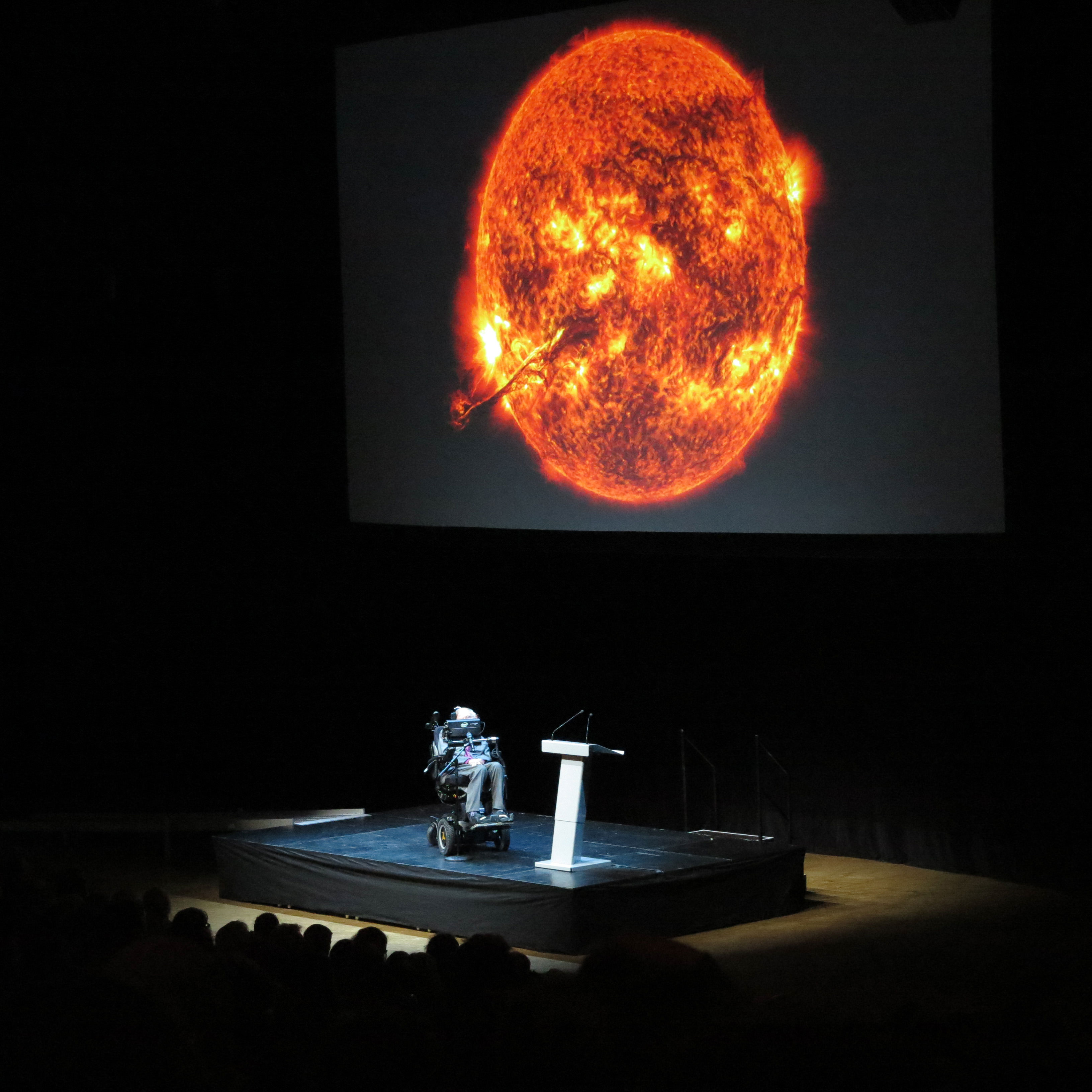It has been argued that the greatest reason our species should explore space and colonize other planets is so that a cataclysmic fate won't be able to claim all of humanity. That is the driving force behind Elon Musk's plan to
colonize Mars
. And it has certainly been the driving point behind Stephen Hawking's belief that humanity should become an interplanetary-species.
And according to Hawking, becoming interplanetary is something of a time-sensitive issue. During a recent speech presented at the
Oxford Union Society
(Oxford University's prestigious debating society) Hawking laid it out plainly for the audience. Humanity has 1000 years to locate and colonize new planets, he claimed, or we will likely go extinct.
For almost 200 years, the Oxford Union Society has been a forum for intellectual debate. In the past, it has also hosted such speakers as the Dalai Lama, Stephen Fry, Morgan Freeman, Richard Dawkins, and Buzz Aldrin. On this occasion, Hawking addressed a crowd of students and professors about space exploration and humanity's future - two subjects he's well versed in!
[caption id="attachment_123568" align="aligncenter" width="580"]
Stephen Hawking is a major proponent for colonizing other worlds, mainly to ensure humanity does not go extinct. Credit: educatinghumanity.com
[/caption]
As Hawking made clear, humanity faces a number of existential threats, many of which are going to become a serious problem during the 21 century century. These include, but are not limited to, the threat of Climate Change, nuclear holocaust, terrorism, and the rise of artificial intelligence. The solution, Hawking argued, is to get into space and establish colonies as soon as possible.
As he was quoted as saying by the
Christian Science Monitor
, this will need to take place within the next 1000 years:
This was not the first time Hawking has expressed concerns about the future. In January of 2015, Hawking joined Elon Musk and many other AI experts to pen the "
Research Priorities for Robust and Beneficial Artificial Intelligence
" - aka. the "Open Letter on Artificial Intelligence". In this letter, he and the other signatories raised concerns about the short-term and long-term implications of AI, and urged that steps be taken to address them.
[caption id="attachment_123575" align="aligncenter" width="580"]
President Barack Obama talks with Stephen Hawking in the Blue Room of the White House before a ceremony presenting him and 15 others the Presidential Medal of Freedom on August 12th, 2009. Credit: whitehouse.gov/Pete Souza
[/caption]
In addition, back in
January of 2016
, Hawking warned that humanity's technological progress has the power to outstrip us. This occurred during his speech at the
2016 Leith Lectures
, where Hawking spoke about black holes and why they are fascinating. During the Q&A period that followed, Hawking turned to the much more dour subject of whether or not humanity has a future. As he said at the time:
Similarly, Hawking indicated back in 2010 that humanity's survival beyond the next century would require that we become a space-faring race. In an interview with
Big Think
, Hawking claimed the odds of humanity making it to the 22nd century was bad enough for a single-planet species, let alone the 31st:
[caption id="attachment_114188" align="aligncenter" width="580"]
Hawking has repeatedly advocated space exploration and colonization as a way of ensuring humanity's survival. Credit: NASA/MSFC
[/caption]
But before anyone gets all gloomy, it should be noted that between our plans to colonize Mars, and the success of the
Kepler mission
, we have found hundreds of planets that could serve as
potential homes for humanity
. But as Hawking has stated in the past, we will need
at least 100 years
to develop all the necessary technologies to build colonies on even the closest of these planets (Mars).
Beyond our survival as a species, Professor Hawking also advocates space travel as a way of improving humanity's understanding of itself. This was made evident in a direct quote that the Union live-tweeted during the speech, in which he said: "We must continue exploring space in order to improve our knowledge of humanity. We must go beyond our humble planet."
And as he has done so often before, Hawking ended his speech on an optimistic note. According to the
Independent
, he wrapped up his Oxford lecture with the following words of advice:
It seems we have our work cut out for us. Extra-terrestrial and/or extra-solar colonies by 3016... or bust!
Further Reading: Oxford Mail
,
CS Monitor,
Independent
 Universe Today
Universe Today
